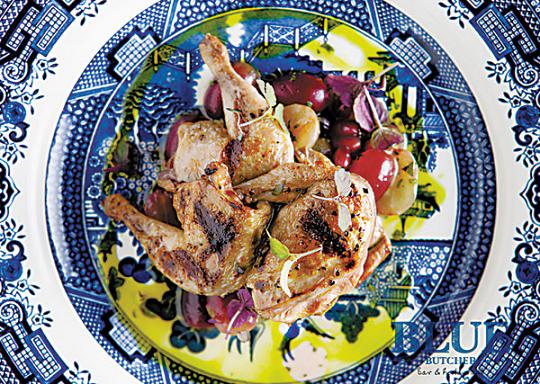
 |
| Lamb shank and tiramisu at Scala restaurant. Provided to China Daily |
Onno Schreurs, managing director of DiningCity for China, says it's hard to get a table in Hong Kong. The restaurants he is referring to are often on the high-end and are booked up weeks in advance.
Schreurs notes that "business is good" for restaurants in Hong Kong.
But why is that so?
Restaurants are opening and closing constantly in this competitive environment. Hong Kong diners have many sources of information available to them when searching for a place to eat out.
A quick search on the Internet will yield reviews on websites such as Open Rice, WOM, Lifestyle Asia, CNN Go, DiningCity and more, plus a number of blogs.
Though statistics are not available, from just a sampling of friends and family, almost every time they need to choose a restaurant, they will do an Internet search. With such a plethora of information available it is a bit overwhelming for some.
In Hong Kong, the Michelin people have also published their guide handing out stars and bib gourmand recommendations.
Such a rating system doesn't exist in mainland cities, taking Shanghai for example, and this is perhaps where the main difference is when it comes to how diners make choices in the two cities.
Restaurant Week organizer DiningCity gives out awards, and competition in Shanghai for these awards is much more fierce than in Hong Kong. These awards help the restaurants to stand out and bring in customers.
Liem believes that Restaurant Week in Hong Kong is still in its infancy though.
"In Hong Kong we host the fourth edition with 74 participating restaurants, if we look at our DiningCity colleagues in Shanghai, they are hosting their seventh edition with over 100 restaurants," he says.
"For Hong Kong we expect to grow by number of participating restaurants as well as online reservations for Restaurant Week. In Hong Kong many people enjoy three meals per day outside."
With a city culture where a large majority of the population eats out for one to three meals a day, Liem is confident that growth for the Restaurant Week concept in inevitable, but that it will take a bit more time.
From current data, we can see that the weeklong event has grown since its introduction in July of 2011 with 41 participating restaurants and 7,800 online reservations to just over 70 participating restaurants and about 12,800 online reservations in July 2012.
This year's Restaurant Week in Hong Kong runs from Feb 25 to March 3 with about 13,000 seat reservations after the first day of booking was open to the general public. It seems that this edition of Restaurant Week in Hong Kong is the most successful thus far.
During Restaurant Week in Shanghai, in areas such as the Bund and Xintiandi, restaurants that don't participate are empty while those participating are at capacity.
Restaurant owners are much more motivated to participate because of this. In Hong Kong, this is also happening in some areas where there is a higher concentration of restaurants such as in the Soho area.
 |


















![]()
